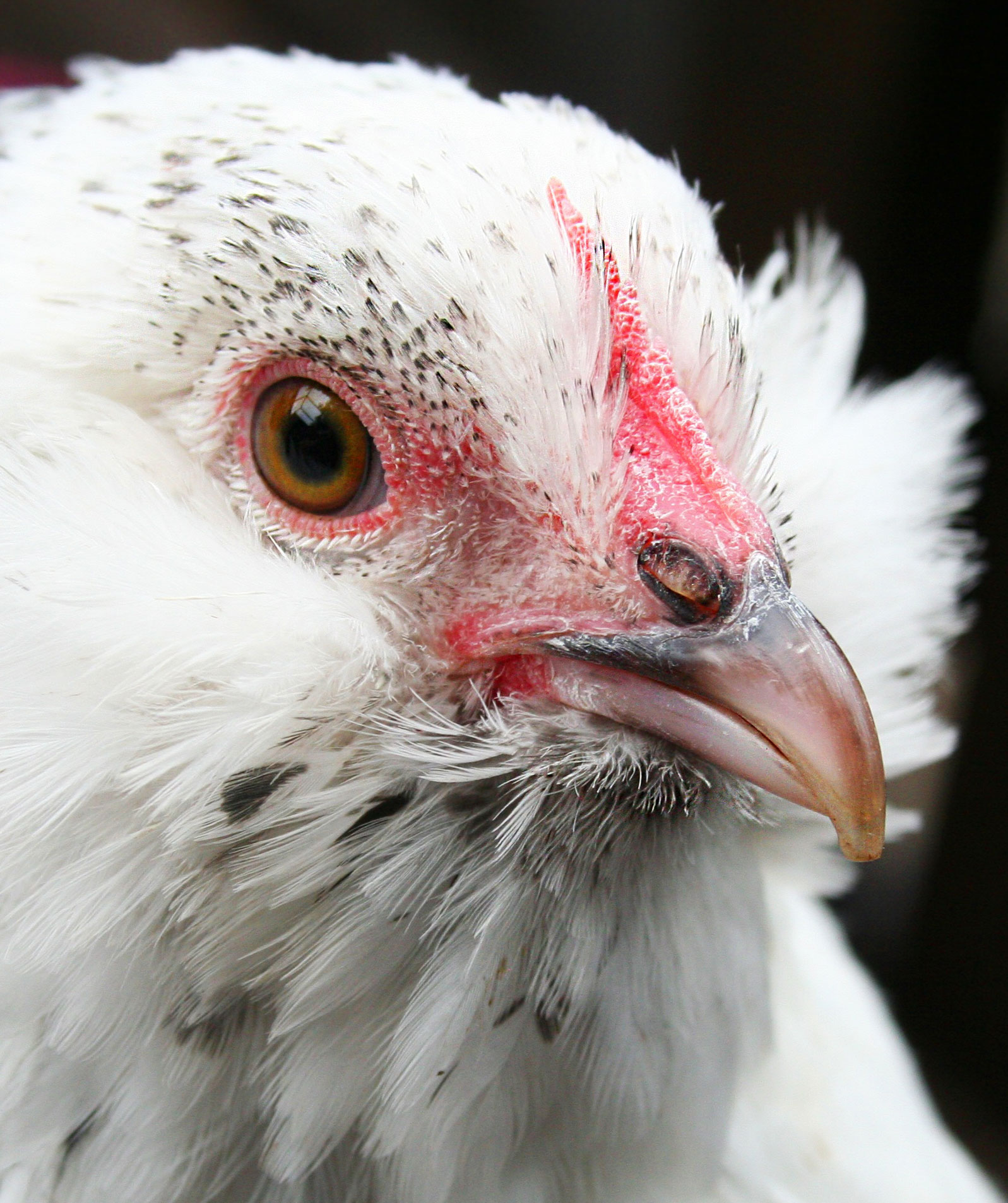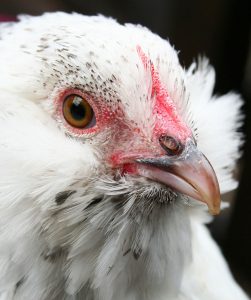
The easy answer to the question “Why do chickens wipe their beaks?” is because they’re birds. Beak wiping involves rapidly scraping alternating sides of the beak on the ground or other surface. It’s an important activity for all birds, except maybe waterfowl.
But why they do it remains something of a mystery, even to avian experts. In 1970, University of Connecticut professor George A. Clark, Jr., reviewed 67 studies on bird beak wiping that had been published up to that time, many of them posing more questions than answers. Research is ongoing, as ornithologists attempt to unravel the mystery. So far they’ve come up with four important functions of beak wiping.
-
A chicken wipes its beak to clean it.
Chickens that eat anything messy — such as moistened feed or mashed boiled egg — wipe their beaks on the ground to clean off the goo. The stickier the food, the more they wipe. According to Dr. Clark, “Such wiping presumably aids sanitation.” In this context, think of beak wiping as a table napkin.
-
A chicken wipes its beak to sharpen it.
A chicken’s beak is covered with keratin, the same material as your fingernails, and like fingernails the beak’s keratin keeps growing. In the natural course of scratching and pecking, a chicken wears down the keratin nearly as fast as it grows, keeping the beak sharp for more pecking. When chickens lack the same opportunity to forage as free-range chickens, their beaks don’t wear down as fast. To keep their beaks sharp, confined chickens wipe their beaks more often than free range chickens do. In this context, think of beak wiping as using the ground for a sharpening stone.
-
A chicken wipes its beak to shape it.
Beak wiping controls the length and overlap of the upper and lower beak, according to a study lead by Inness Cuthill, an ecologist at the University of Bristol, U.K. The shape of a chicken’s beak influences how well it can pick up available food. The less abrasive the surface available for beak wiping, the more often birds engage in beak wiping and the less rapidly they are able to peck up dinner. In this context, think of beak wiping as similar to clipping your nails.
-
A chicken wipes its beak to attract mates.
Beak wiping releases an odor that may be detected by potential mates and rivals, according to Danielle Whittaker of Missouri State University. A preening chicken rubs its beak against the oil gland at the base of its tail, and subsequent beak wiping releases the smell of preen oil on whatever the beak is wiped against. Whittaker and her team found that a bird’s odor correlates with its reproduction success by informing potential mates about the bird’s genetic background, hormone levels, reproductive condition, and overall health. Interestingly, these researchers found that younger, smaller males beak wipe more often than older, larger males. In this context, think of beak wiping as exuding perfume (hens) or cologne (roosters).
So here’s a question for you: Why do chickens sometimes wipe their beak against your shoes or the leg of your pants? Are they using your foot as a napkin? Are they telling you they like you and want you to smell like a chicken? Are they odor-marking you as their human, like a cat rubs its chin on your ankle? Researchers would be the first to point out that we still have a lot to learn about why chickens wipe their beaks.
And that’s today’s news from the Cackle Coop.
Gail Damerow, author, Storey’s Guide to Raising Chickens


